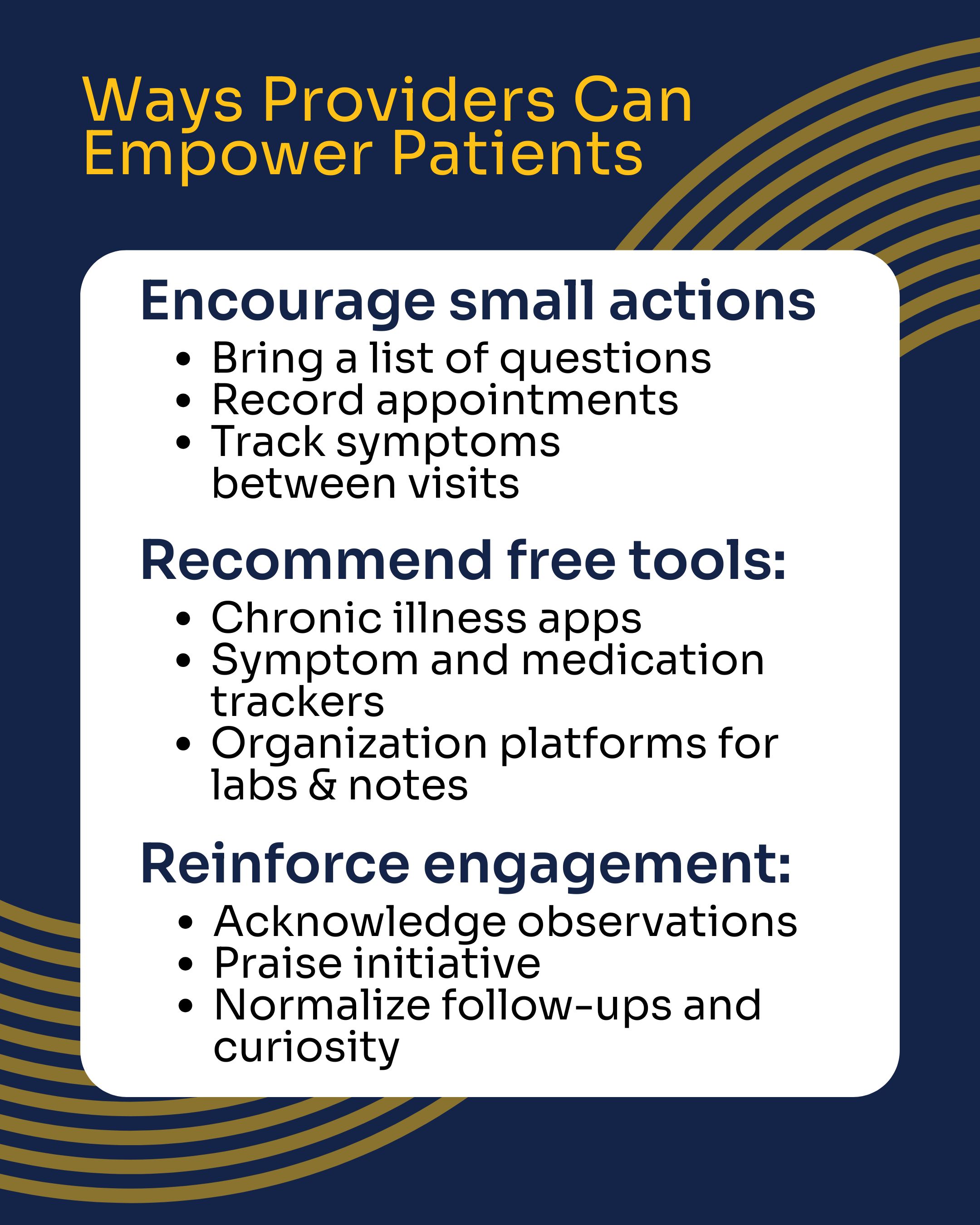Session Information
Session Type: Poster Session A
Session Time: 10:30AM-12:30PM
Background/Purpose: As a journalist, I’ve spent my career digging for answers. But when I became the story, I had to learn how to ask the right questions – about my care, my symptoms, and the system that wasn’t built for someone like me.
In March 2023, I was diagnosed with dermatomyositis (DM) associated with antisynthetase syndrome and Sjögren’s syndrome (SS). The lead-up to those diagnoses was complicated and full of frustration. I quickly realized that if I wanted answers, I had to push for them – and once I had them, I had to lead. These were skills I fine-tuned in newsrooms, and I began to approach my health like a full-time job. That shift, while often overwhelming, reshaped how I engaged with my care.
Intervention: I applied the systems and storytelling skills I developed as a journalist: setting aside time weekly to manage appointments, organize records, and prepare questions. I recorded visits and used transcripts to track details and keep my family informed. Sharing my story publicly helped me develop clearer language around my symptoms—improving communication with my care team and strengthening our partnership.
That storytelling practice has grown into national advocacy work. I was invited to speak at the National Institutes of Health for Rare Disease Day 2025, delivered the keynote at the TMA We Care for Rare Summit, and led a storytelling workshop for nearly 100 people affected by myositis.
Maintenance: By treating my health like a full-time job, I’ve seen measurable improvements in how I manage my care. My missed appointment rate is under 5%, compared to nearly 40% at my clinic – something I attribute to the systems I’ve built. Staff has expressed appreciation for my follow-ups, which encourages me to advocate without hesitation. Staying informed also paid off: tracking CAR T-cell research allowed me to have early, informed conversations with my rheumatologist, so I was ready when a trial opened. I’ve seen similar transformations in the myositis community—when patients build storytelling skills, their confidence grows, and with it, a renewed sense of control and emotional well-being.
Quality of Life: Taking ownership of my care and embracing my story helped reduce the anxiety and helplessness I felt early in my diagnosis. I began to feel more in control of my health and my daily life.1 That shift made it easier to manage the emotional toll of chronic illness and advocate for what I needed.2 It also strengthened my relationships with my care team – our interactions now feel more collaborative, and I’m treated as a partner in decision-making.3
Takeaway: As a journalist, I was trained to research, ask tough questions, and communicate clearly – skills that became essential when I had to start managing my own care. But patients shouldn’t need a background in storytelling or investigative work to feel confident navigating their health. Medical providers can play a powerful role in helping patients step into that leadership (Fig. 1). By normalizing organization, curiosity, and follow-up, you can show patients that their engagement is not only welcome – it’s valuable.
Encourage them to treat their care as something they can manage, not just endure. Patients who feel supported are more likely to stay informed, speak up, and follow through.1 When providers support that shift, care becomes a true partnership 2 – where communication is clearer, collaboration is stronger, and outcomes improve on both sides of the relationship.3
 Ways Providers Can Empower Patients
Ways Providers Can Empower Patients
To cite this abstract in AMA style:
Guentzel L. When You Become the Story: A Journalist’s Approach to Managing Complex Care [abstract]. Arthritis Rheumatol. 2025; 77 (suppl 9). https://acrabstracts.org/abstract/when-you-become-the-story-a-journalists-approach-to-managing-complex-care/. Accessed .« Back to ACR Convergence 2025
ACR Meeting Abstracts - https://acrabstracts.org/abstract/when-you-become-the-story-a-journalists-approach-to-managing-complex-care/

.jpg)